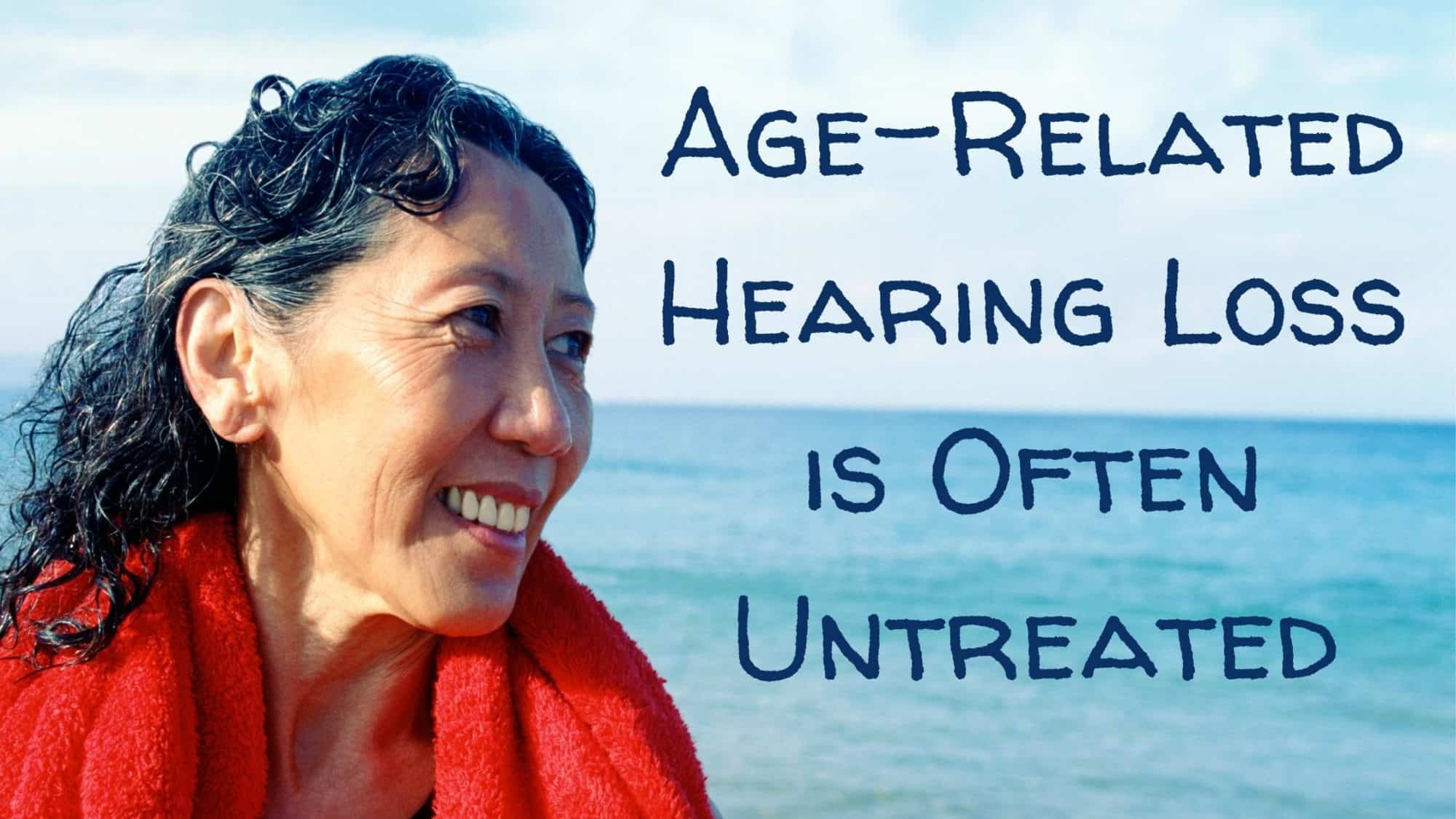- Volunteering for Hearing Health Causes - May 27, 2025
- Questions to Ask During Your Hearing Health Appointment - May 16, 2025
- Exploring Alternative Therapies for Hearing Loss - May 6, 2025
What did you say? If you ask people to repeat themselves in every conversation, you may have an untreated hearing loss. Age-related hearing loss affects millions of adults. The earliest signs of hearing loss can begin in your 40s and 50s. And by the time you reach 65, you have a 33% chance of having a hearing loss.
Age-Related Hearing Loss
One of the most common kinds of hearing loss is presbycusis, or age-related hearing loss. During a lifetime of enjoying a world full of sound, the cells in your ears experience a lot of wear and tear. Just like your joints get a bit stiffer with age or your eyesight changes, your hearing is also affected by your age. About two thirds of people over 75 have a hearing loss, and nearly 100% of people in their 90s have some hearing loss.
Age-Related Hearing Loss is Often Untreated
Many older adults think that age-related hearing loss isn’t a big deal. If it’s a natural part of aging, why bother treating hearing loss at all? This thinking is what causes 4 out of every 5 adults to keep living with untreated hearing loss! Hearing loss can reduce your quality of life, make it hard to connect with loved ones, and will stop you from doing the things you love.
Just think about this for a moment. If your vision changes, you’re quick to get glasses to help you see clearly. And if you have joint pain you take pain management medication, do daily stretches, or even schedule a knee replacement surgery. So why is your hearing health so different?
The Stigma Around Hearing Loss
Hearing loss is linked to a stigma around getting old. That’s because it’s more common to see older adults wearing hearing aids. However, just because older adults have higher rates of hearing loss doesn’t mean that having a hearing loss means you’re over the hill.
Age-related hearing loss often starts when you’re in your late 40s or early 50s. Hearing loss is a natural part of aging, but it doesn’t mean you’re old. As younger adults begin to look after their hearing health, this stigma around hearing loss is changing. Hearing screenings for children, teens, and younger adults is also more common, so now we’re seeing millions of people of all ages wearing hearing aids.
Treating Hearing Loss with Hearing Aids
Today’s hearing devices are better than ever before. Wearing hearing aids has become a lot more routine as people realize just what a difference hearing aids can make. Modern hearing technology makes it easy to follow conversations, hear in noise, and catch all the softest sounds.
Advanced programs and settings help students connect in class, make it easier for you to talk on the phone, and make TV watching fun again. Modern hearing aids are designed for people on the go, and these hearing aids are designed to help you hear in every listening environment.
Recognizing the Signs of Hearing Loss
Whether you’re 30 or 70, it’s important that you learn to recognize the signs of hearing. Some of the earliest signs of hearing loss include:
- Having a hard time hearing the TV, and turning up the volume.
- Struggling to follow conversations, especially if there’s any background noise.
- Asking people to repeat themselves, and still not always understanding what was said.
Remember that you may not be the first person to recognize these signs of hearing loss. Your brain makes adjustments everyday so that you don’t hear the small day to day changes. And if your hearing loss is making you miss a few soft sounds in your environment, how will you know if you can’t hear them?
Your family and friends may notice the signs of hearing loss before you do. If your loved ones mention that you may have hearing loss, take it seriously. Ask them to give you some examples, and look for any other signs of hearing loss.
Book a Hearing Test
If you think you have hearing loss, book a hearing test! We’ll test your hearing abilities to find out more about your hearing needs. Then we’ll work together to find the right treatment option that matches your lifestyle and your budget. Come see us today!

